- Home
- Terry Tyler
Megacity: Operation Galton Book 3
Megacity: Operation Galton Book 3 Read online
MEGACITY
Terry Tyler
©Terry Tyler 2020
This is a work of fiction. All names, characters, places, websites, computer applications, product names and incidents are either products of the author's imagination, and subject to copyright protection, or used fictitiously.
Any resemblance to actual events, locations or persons, alive or dead, is entirely coincidental.
No part of this publication may be reproduced or transmitted in any form or by any means, electronic, mechanical or otherwise, without the express written permission of Terry Tyler.
All rights reserved.
Dedicated to my beloved husband, who makes my life so happy
Contents
Introduction
Part One 2041 - 2051
Chapter 1: Tara
Chapter 2: Radar
Chapter 3: Tara
Chapter 4: Radar
Chapter 5: Aileen
Chapter 6: Radar
Chapter 7: Aileen
Chapter 8: Tara
Part Two 2051 - 2061
Chapter 9: Radar
Chapter 10: Aileen
Chapter 11: Tara
Chapter 12: Aileen
Chapter 13: Tara
Chapter 14: Jerome
Chapter 15: Tara
Chapter 16: Radar
Chapter 17: Tara
Part Three 2061 - 2062
Chapter 18: Operation Galton, Phase 11
Chapter 19: Tara
Chapter 20: Radar
Chapter 21: Tara
Chapter 22: Aileen
Chapter 23: Tara
Chapter 24: Radar
Chapter 25: Xav
Chapter 26: Tara
Chapter 27: Ezra
Part Four Laser62
Chapter 28: Leah
Chapter 29: Tara & Aileen
Chapter 30: Leah
Chapter 31: Radar
Chapter 32: Jerome
Chapter 33: Leah
Chapter 34: Radar
Chapter 35: Leah
Chapter 36: Radar
Chapter 37: Leah
Chapter 38: Jerome
Chapter 39: Leah
Chapter 40: Aileen
Chapter 41: Tara
Chapter 42: Aileen
Chapter 43: Tara
Chapter 44: Aileen
Chapter 45: Skylar & Kush
Chapter 46: Two Weeks Later
Epilogue
Author's Note
Other Books by Terry Tyler
Recap of Hope and Wasteland
Introduction
Thank you for downloading Megacity, the final book in the Operation Galton trilogy. The story spans a period of twenty-one years, from 2041-2062, and is divided into four parts. Part Three covers the same time period as Wasteland, Book Two in the series, i.e., the latter half of 2061, but from very different points of view.
The operation is named after Frederick Galton, a pioneer of eugenics in the late 19th and early 20th Century; it was he who invented the term.
The trilogy is based around the three domains of my fictional future UK: Hope Villages, the wasteland, and the megacities. Each book tells the story of new characters, though some do cross over—in Megacity you will find out what happened to Rae's group from Wasteland, and also Kendall, Xav and others.
If you would like a brief recap of Hope and Wasteland before you begin this story, please click HERE. At the end, you will find a link back to the start.
Happy reading!
Part One
2041 ~ 2051
Chapter 1
Tara
2041 ~ 2043
The man with the kind eyes said, "Run. Now."
So I ran.
I understood Mum and Shane's world, so I didn't hesitate.
You can't leave witnesses. Not even one who is only eight years old.
Ten minutes earlier I'd seen them walking up the garden path. Three big, scary men.
I burst into the living room where Mum and Shane were watching TV and drinking, and cried out, "They're here!"
Mum screeched, "Hide!"
Up the stairs I ran as the front door was kicked in and, over the banging and shouting, I heard a gruff voice say, "There's a kid. Find her, deal with her."
I curled up as small as I could in Mum's wardrobe. When the door creaked open I shut my eyes tight and tried not to scream, but nothing happened so I peeped out between the clothes. I saw a young black man with a bald head, smiling at me. He put a finger to his lips, and whispered that I must put on my coat and shoes.
I followed him on tiptoe, carefully, silently, downstairs and out to the kitchen.
We passed the living room on the way. Shane's desperate screams made me think they must be doing something very nasty to him. I stopped; I heard Mum cry out, "No-ooo, please, I beg you, he hasn't told them anything, he made it all up—no, please, not his hand—"
The kind man touched my shoulder and beckoned to me to follow him into the kitchen. He inched the back door open, grabbed a Coke and a couple of cereal bars off the worktop, shoved them into my little purple backpack, and pushed me out.
"Run. Now."
I ran, and I didn't look back.
When I was too puffed out to run any further, I stopped and thought, where to? Mum always told me that if 'anything happened' to her and Shane, I should go to Auntie Danielle, because she was my only blood relative. But I didn't like Auntie Danielle, or my scabby cousins who waited until the grown-ups weren't around then called me bad words like nig-nog, and Mum some that were much worse.
My dad was black and my mum white. I never met my dad, or even knew what his name was. I'm not sure Mum knew, either. I didn't think of myself as black or white or anything, really. My schoolfriends were all sorts of different colours and none of us took any notice, but Mum told me there were some grown-ups like Auntie Danielle's husband who taught their kids to be racist.
Looking back, I believe I was able to deal with what happened to Mum and Shane because I was waiting for it. Same as they were. Every morning when I got dressed, I thought, is it going to be today?
Sometimes I watched old films about gangsters with Shane when Mum was asleep, and I knew they were the same as our life, because I listened and learned.
Mum and Shane sold crack and smack for someone called Lightfoot, but Shane had become a police informant; he was arrested but agreed to inform on Lightfoot and his mob rather than go to jail. Often, he'd say that he wished he'd done the jail time instead. The tension in our house was so thick you could almost see it, and Mum drank too much and took anxiety tablets. Every time their phones pinged, every time there was a knock on the door, they looked at each other as if the end had come.
Every time, I expected it to be 'them'.
I would sit on the stairs when I was supposed to be in bed and hear Mum ranting and crying, saying we should disappear while we still had a chance.
But we didn't, and the men came.
Running down that road I felt a mixture of numb shock and a strange release. 'Anything' had happened now, so I could stop being scared that it was going to.
I didn't process what had actually taken place, not for some days.
I went to Mum's friend Kelly's house. Kelly worked for Lightfoot too, cutting up the stuff and bagging it to be sold. I liked her, and I knew she'd look after me.
When I knocked on her door, she took one look at me and said, "Oh no, is it your Mum and Shane? I heard a rumour, but—"
She put her arms around me and held me close, and she smelled of baby powder, instead of drink like Mum. She sat me in a back room with her kids' toys, but I listened at the door, and her boyfriend was saying, "Don't
talk stupid, Kel, she can't stay here. We'll get the same as Mandy and Shane."
Kelly said, "It's just for tonight, then we'll think of something. Shit, I only said to Mand the other day, you need to just go, but you know what Shane's like."
"They'll end up same place as Tony Marsh, then."
"Where?"
"Building site out past the motorway turn-off."
I heard Kelly say, "Shut up, Tara'll hear," and then the telly was turned up.
Tara had already heard.
Our neighbourhood had yet to be cleared; that building site became Megacity 4 stacks, and I assume Mum and Shane's bones are still beneath one of them. I'd heard Mum talk about Tony Marsh's 'concrete grave' when she was too drunk to notice I was in earshot.
I never saw our house or anyone I knew back then, ever again. Not Auntie Danielle and my scabby cousins, not our next-door neighbours with the sweet dog, none of my friends from school, because the next morning Kelly's boyfriend rang up the Social Care busybodies, and they came and took me away.
Hope Village 44 was better than being at home, even though I cried for my mum, and Shane; he'd been kind to me, like a real dad. But there wasn't anyone getting drunk and shouting, or scary men who cut bits off people, and there was a nice lady called Angela who made me talk to her about my life. Police came and sat with Angela while she told me that Mum and Shane were dead, and they asked me what I'd seen, but I knew what happened to people who grass, so I kept it zipped.
Later, Angela said that two men had been caught and sent to prison, and I smiled to myself; the man with the kind eyes must have got away.
I wondered if he'd been a magic angel sent to save me.
At Hope, I slept in a big dormitory with lots of other kids, and that was fun. I wasn't a scaredy-cat type so I made friends, but my BFF, right from the start, was Radar.
His name wasn't really Radar, it was Ben. Benjamin Bundock. At his first school his teacher called him Benjamin Bunny, and all the other kids took the piss, so when he got to Hope 44 he told them he was called Radar, which he thought sounded like a robot warrior from the future. If anyone called him Ben or Benjamin, even the teachers, he ignored them. If they were the same size as him, he hit them.
We understood each other because his parents had been druggies. He went to live with his gran because they couldn't look after him, and he said living with her was the best ever, but when he was eight she got ill and died, so they put him in Hope Village 44.
His eyes went all teary when he told me that, and he looked away so I wouldn't see.
Radar was one year older than me, big and a bit fat, with messy red hair. He said his parents must have hated him to make him a ginger with a stupid name, then one day this older girl—Ava—said he could dye it.
She meant light brown to cover the ginger, but he wanted black. He said black would make him look cool, and Ava said, "If you say so." She bought it from the canteen shop and helped him put it on, anyway.
It looked dead weird because of his ginger eyelashes and eyebrows and freckled pink cheeks, and a couple of other kids laughed, but they only laughed once. We didn't care, because Radar loved it.
"I won't always be fat," he used to say. "When you're thirteen you grow up instead of out, however many sweets you eat. My gran told me." He patted his big tummy. "It's called puppy fat, and it goes away. Then I'll be one of those tall thin cool guys with black hair and a black leather jacket."
He was already getting taller and thinner by the time I left Hope 44. I wonder what he's like now. What he's doing. If he's still there, or somewhere better.
Or somewhere worse.
The staff at Hope 44 used to say we were 'inseparable', and we were, we were everything to each other. Radar told me his druggie dad used to hit him and his mum, and being fat and ginger at his shitty rough school meant he had to beat up anyone who laughed at him or he'd have got bullied. So people thought he was a thug, but he wasn't. There was so much more to him that they didn't see. He knew about all sorts of animals—he would show me ones I'd never heard of, in books in the library—and he had a soft heart that only I and the older ladies saw. The rough lads wanted him in their gang because he was hard, but I kept him away from people like Lee Manning and Jayden Ross. Evil bastards, they were, even at eleven years old. I was scared they'd lure him away and he'd become just another mindless little shit like them, causing trouble for no reason other than to break stuff and hurt people. But Radar always told me no way, 'cause I was his BFF.
"And that means forever," he'd say. "We'll get married when we're old enough. Sixteen, right? So that's only seven years to go." His mates would tease him and say I was his girlfriend, and he would say, "Too fuckin' right. You lot are just jealous!"
We meant everything to each other. Everything.
He told me about off-grids, lovely farms where people grew their own food and kept goats and pigs and sheep; his gran had shown him on the computer. He said we would live on one when we were grown up. Run away from Hope 44 and find one that would take us in, or start our own. We even decided what we would call all the animals.
But we never did any of that, because when I was ten this rich couple called Clinton and Marilee Bettencourt came to Hope 44 and chose me, like in a shop, and took me away to live with them.
The Bettencourts lived in a mansion in a Megacity 5 gated community.
All I knew about the megacities was that people like me didn't live in them. They were for those with money and proper jobs, but even in Hope 44 we knew who the Bettencourts were, because the teachers told us about them—a huge 'American-English' family who owned Nutricorp, which helped the government run the UK.
In Hope 44 all the staff wore red baseball caps, so we called them the red caps. When one of them told me I had a visitor, I was scared in case it was one of Lightfoot's people. I expected to be taken to the visitors' lounge, where I'd never been, but the red cap took me into a private room with armchairs like in a real house, and a vase of flowers on the table.
Waiting to greet me were a beautiful woman with blonde hair, and a handsome man. I'd never seen rich people in real life, only on the telly. To my ten-year-old eyes, Marilee and Clinton seemed like a different species. They had a sheen about them; their clothes looked brighter, cleaner, smarter than any I'd ever seen, their skin glowed with health, and they smelled wonderful. And they were both smiling at me. Proper, lovely smiles, like they were pleased to see me.
"Hello, Tara," said the lady, bending down to my level. "I'm Marilee and this is my husband, Clinton. We've come to take you out for the day; would you like that?"
I was struck dumb, but I nodded, because who wouldn't want to go out for the day?
Then the man said something―I can't remember what, I think he asked me if I liked ice cream―and I realised that he was American, like on the TV, which made him even more glamorous.
The day was like a dream. They took me to a megacity, and we went to a retail village (though I didn't know what it was, then) where they told me I could pick out new clothes and shoes.
"They'll all be waiting at Hope 44 for you, by the time you get back," Marilee told me.
We went for pizza and ice cream, and to a place called Aquatica where there were all sorts of fish and sea creatures in huge tanks. I smiled and smiled, and kept thinking how Radar would have loved it.
Marilee kept saying, "Isn't she a darling?" and Clinton would say, "She sure is."
When they took me back, Marilee asked me if I would like to give her a kiss on the cheek. I didn't really want to, but I did, and she seemed so pleased. Her skin was soft like satin, and smelled of perfume.
I was left feeling totally bewildered. I didn't know what it was all about, and nobody told me. I collected my lovely new clothes (a brilliant white hoodie, new jeans, trainers that glowed in the dark and pyjamas with cats on) and went back to the children’s lounge wearing the trainers, dying to tell Radar about everything that had happened.
He didn't want to kno
w. Even though I offered him the bag of sweets that Marilee had pressed into my hand when she left.
He shoved me away and went off to hang out with Lee and Jayden. I sat in a corner on my own. I couldn't help it, I started to cry. Even though I hardly ever cried. I could feel him looking at me, you know how you can? After a while I stopped, because crying made you look weak, and you couldn't be weak in Hope 44. Radar came over and gave me a hug and said he was sorry.
He said, "If they come again, will you ask if I can go too?"
And I said, "Yes―I wanted to ask them this time but they didn't say I could bring a friend."
So then he let me tell him all about it, the pizza and ice cream, all about the fish, though he wasn't interested in the clothes bit. And I took my sweets out of my pocket and we shared them, and everything was lovely again.
Marilee and Clinton Bettencourt came back the next weekend, and said they wanted to take me out again. Of course the first thing I did was ask if I could bring Radar.
"Not this time, darling," said Marilee, all smiles. "But we've got another girl with us who we'd like you to meet; we thought we'd take you both to an adventure playground. Would you like that?"
Would I like that? I was all over it! I was so excited that I'm ashamed to say that I forgot all about Radar, sitting back in the children's lounge, waiting for me. I felt horrible about that, later.
The other girl was called Zia. At nearly twelve, she was eighteen months older than me, and Clinton explained that he and Marilee were her 'guardians'.
"Zia's like you, she hadn't got a mom and dad, but when we met her we thought she would fit right in with our family, so she's become our ward."
Zia was lovely. I couldn't stop looking at her, because she was so beautiful, with long, shiny black hair, not frizzy like mine. Her skin was about the same colour as mine, and she said her mother was English and her father was from a place called Oman, but they had been taken away because they'd done bad things, so she'd been brought up in NPU in Megacity 3. NPU means 'non-parental upbringing'.

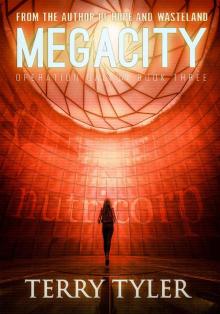 Megacity: Operation Galton Book 3
Megacity: Operation Galton Book 3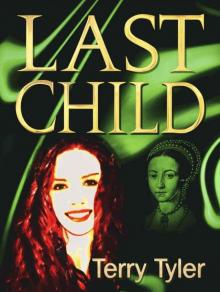 Last Child
Last Child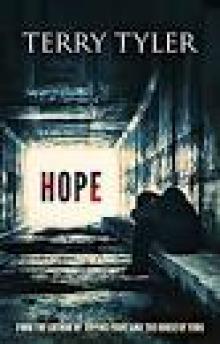 Hope
Hope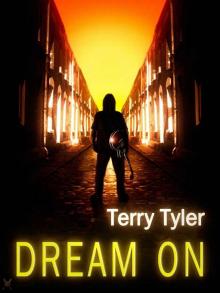 Dream On
Dream On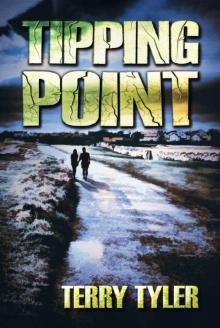 Tipping Point (Project Renova Book 1)
Tipping Point (Project Renova Book 1)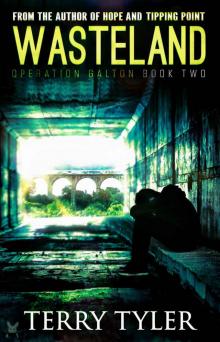 Wasteland
Wasteland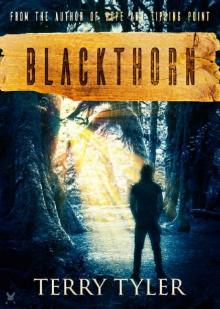 Blackthorn
Blackthorn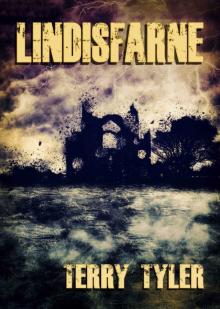 Lindisfarne (Project Renova Book 2)
Lindisfarne (Project Renova Book 2)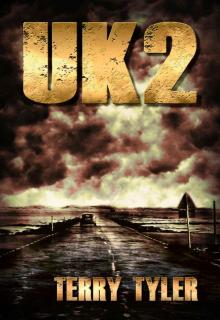 UK2
UK2